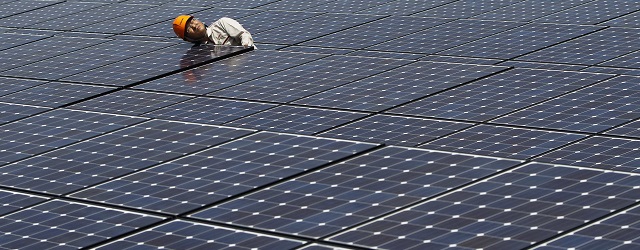On one side of the ring are the Chinese backed by Germany, the UK and other EU members. On the other, France, Italy and the solar lobby ProSun, which accuse China of flooding Europe with cheap panels sold at below the cost of production. ProSun is urging Brussels to impose anti-dumping duties to save their industry, innovation and jobs.
The split between EU countries is potentially debilitating. And China knows it.
For Chinese companies the rise of tariffs would mean paying 50 more than they do now. Many are already struggling with overcapacity. Suntech, which was once the world’s biggest solar panel producer recently put its main operating subsidiary in China into bankruptcy.
Once again, Germany’s position is crucial since it is the only country that can put pressure on the EU authorities to back off. For Berlin the situation is tricky: Germany is China’s most important trading partner in Europe and China is Germany’s leading partner in Asia.
A big German company, SolarWorld, will definitely suffer if the solar Chinese companies get more room to grow, but think of the opposite scenario: Volkswagen cars or Siemens factory equipment, which heavily rely on China for their businesses.
Berlin is admittedly afraid of a commercial war against Beijing, which has already threatened with “necessary steps to defend its national interest,” shall the EU authorities proceed with the tariffs.
The Chinese know they have a premium partner in Berlin. No wonder why Germany was the only EU member country premier Li Keqiang visited during his first trip to Europe since taking office in March.






Be the first to comment on "Tariffs on Chinese solar panels: another EU members’ bicker"